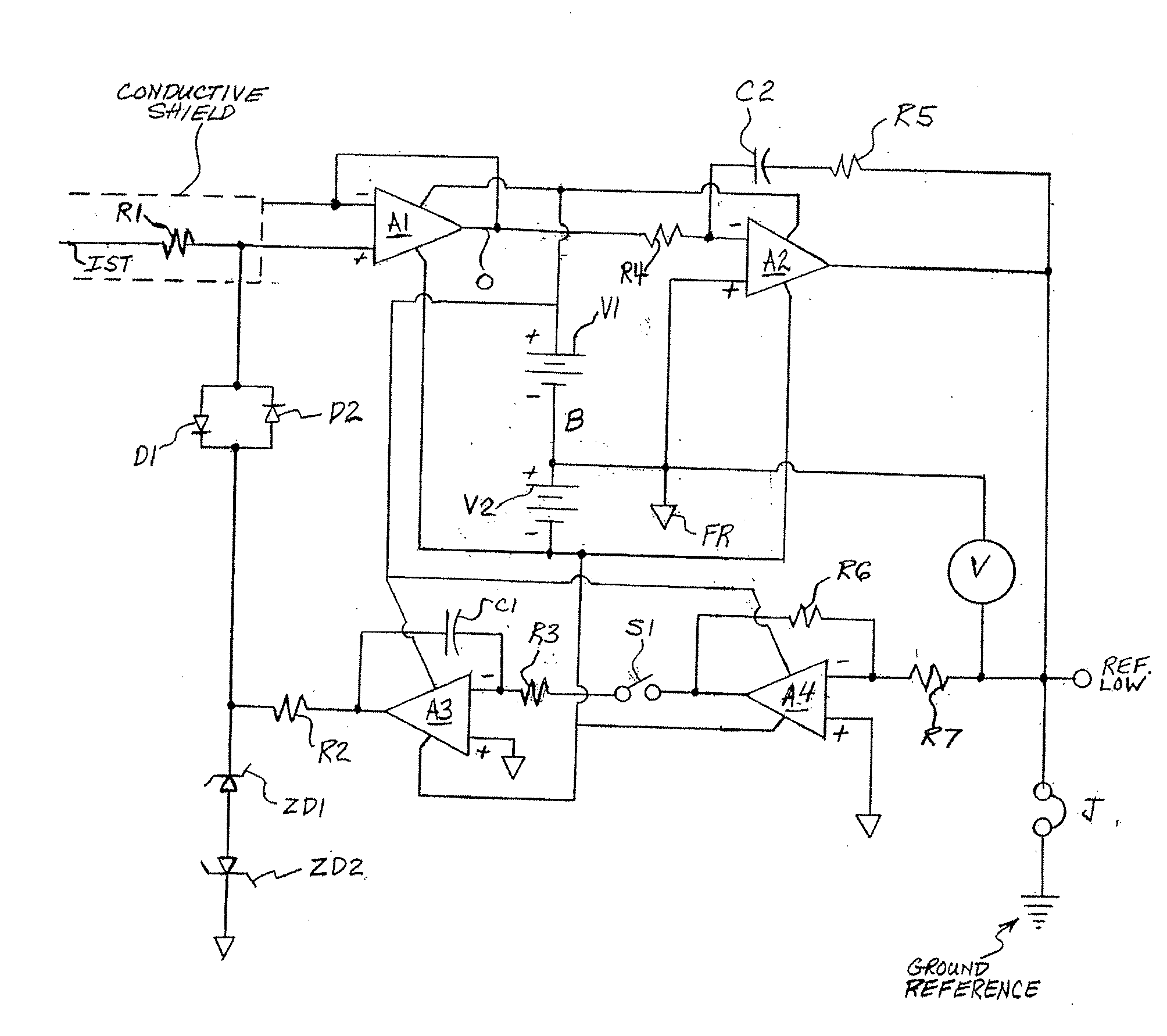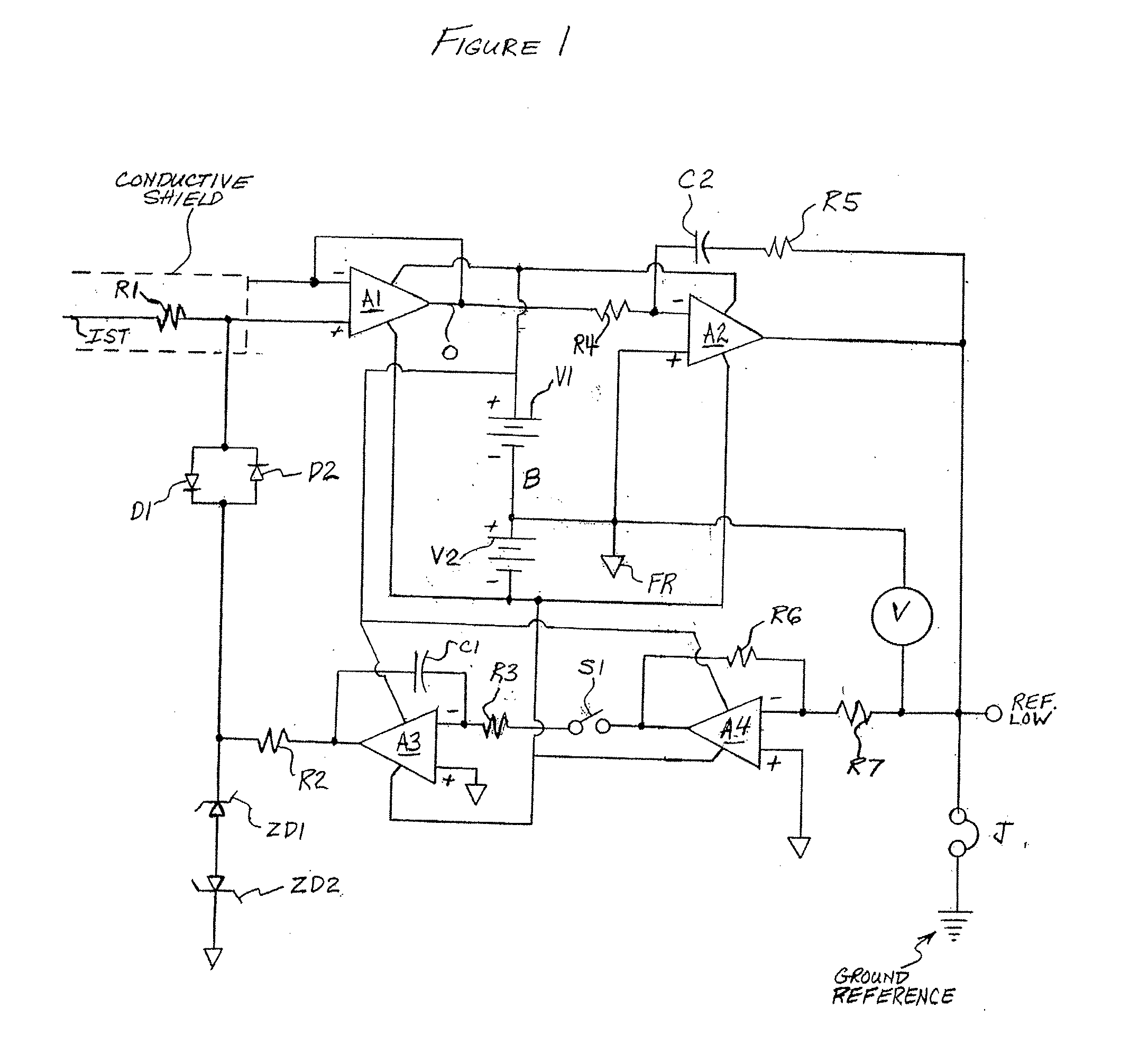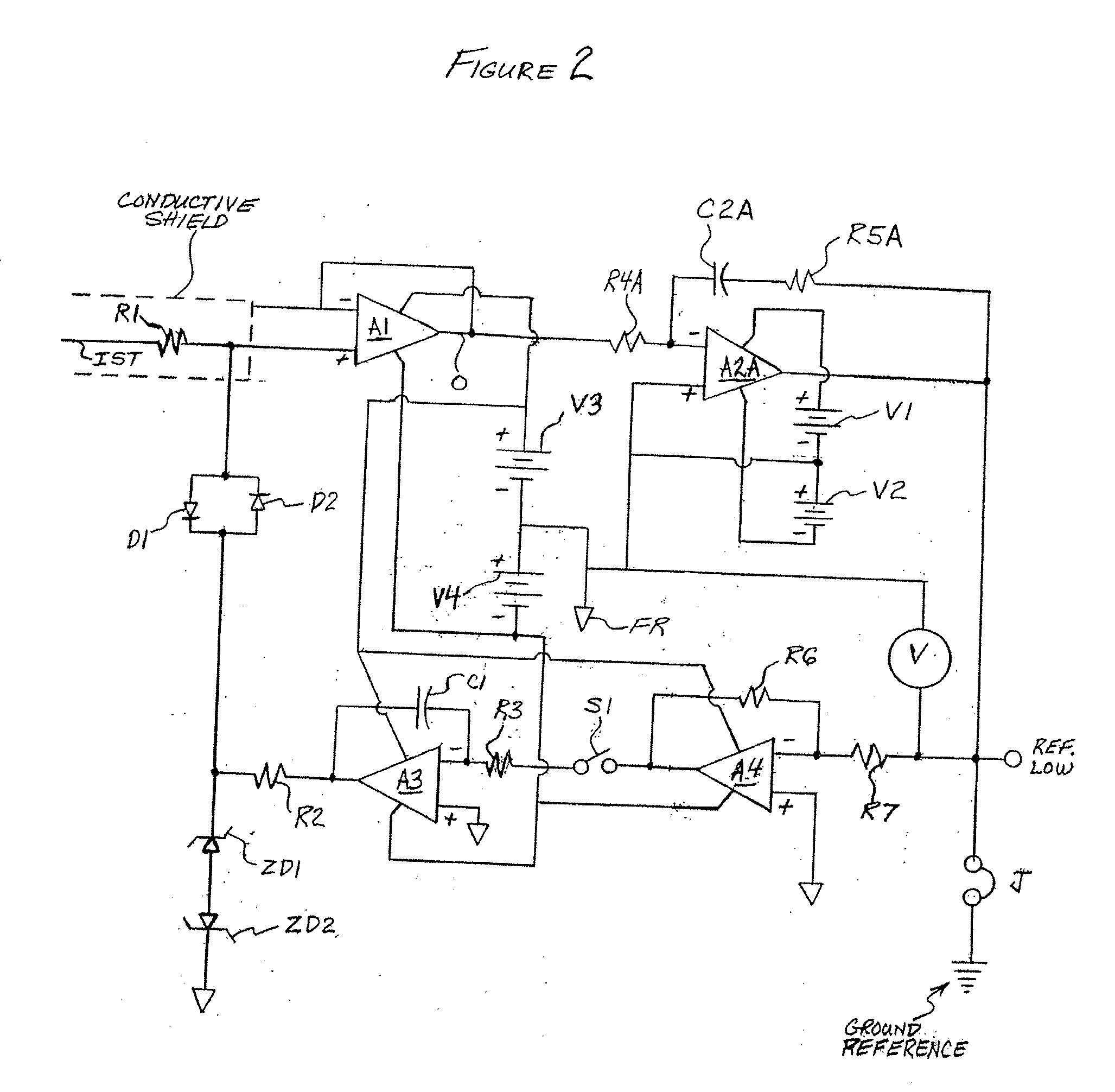Electrostatic Voltmeter
a technology of electrostatic voltage and voltmeter, which is applied in the direction of electrostatic field measurement, instruments, measurement devices, etc., can solve the problems of inability to successfully perform contacting or non-contacting electrostatic voltage measurement, input capacitance of the sensor, and substantial distortion
- Summary
- Abstract
- Description
- Claims
- Application Information
AI Technical Summary
Benefits of technology
Problems solved by technology
Method used
Image
Examples
Embodiment Construction
[0015]An embodiment of the invention is described herein which may provide one or more of the following advantages:[0016]1. input capacitance of less than 1×10−17 farads[0017]2. input bias current of less than 1×10−19 amps[0018]3. measurement bandwidth of greater than 50 kHz[0019]4. a method of initializing the voltage level of the follower's input circuitry at zero volts to prevent charge transfer to / from the measured object upon initial contact, the zeroing method avoiding an offset voltage jump shift at the input upon release of the zeroing circuitry devices.[0020]5. a method to produce nullification of the follower's input bias current and / or other leakage currents without the requirement to intentionally generate a voltage offset between the follower's input and output thus preventing current flow to the input capacitance when making noncontacting measurements, or current flow to the measured object when making contacting measurements.[0021]6. an easy-to-use, portable measureme...
PUM
 Login to View More
Login to View More Abstract
Description
Claims
Application Information
 Login to View More
Login to View More - R&D
- Intellectual Property
- Life Sciences
- Materials
- Tech Scout
- Unparalleled Data Quality
- Higher Quality Content
- 60% Fewer Hallucinations
Browse by: Latest US Patents, China's latest patents, Technical Efficacy Thesaurus, Application Domain, Technology Topic, Popular Technical Reports.
© 2025 PatSnap. All rights reserved.Legal|Privacy policy|Modern Slavery Act Transparency Statement|Sitemap|About US| Contact US: help@patsnap.com



